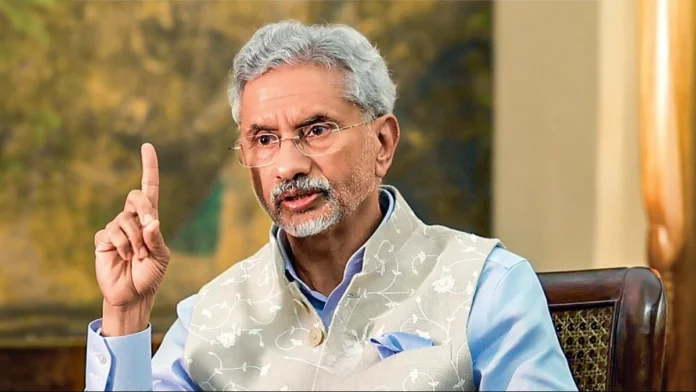India-Canada relations have recently found themselves under scrutiny as the Canadian authorities launched a probe into the death of Jaspal Atwal’s son-in-law, Hardeep Nijjar, and subsequent arrests of Indians. The matter gained prominence after India’s External Affairs Minister, Dr. S. Jaishankar, expressed his stance, emphasizing that there was “nothing worth investigating shared.” This diplomatic statement sheds light on the complexities of international relations and the nuances involved in addressing sensitive issues between nations.
The death of Hardeep Nijjar, a Canadian national with alleged links to Khalistani extremism, sparked controversy and raised questions about his connections and activities. The Canadian authorities initiated an investigation into his death, along with the arrest of several individuals of Indian origin in connection with alleged terrorism-related offenses. These developments prompted a response from India’s External Affairs Ministry, with Dr. S. Jaishankar providing insights into the Indian government’s perspective on the matter.
Jaishankar’s assertion that “nothing worth investigating shared” underscores India’s position regarding the Canadian probe into Nijjar’s death and the subsequent arrests. It suggests that, from India’s standpoint, there may be a lack of substantial evidence or actionable intelligence to warrant formal cooperation or involvement in the investigation. This diplomatic language serves to convey India’s cautious approach while refraining from making any conclusive statements or commitments.
The statement also reflects India’s commitment to upholding principles of sovereignty and non-interference in the internal affairs of other nations. By emphasizing that no information worth investigating has been shared, Jaishankar reaffirms India’s stance of respecting Canada’s jurisdictional authority and legal processes. This diplomatic nuance is crucial in maintaining cordial bilateral relations while addressing sensitive issues that may have implications for both countries.
Furthermore, Jaishankar’s response hints at the complexities surrounding the issue of terrorism and extremism, particularly in the context of diaspora communities. The arrest of individuals of Indian origin in Canada underscores the global nature of terrorism and the challenges posed by radicalization and extremism within diaspora populations. India’s approach to such issues requires a delicate balance between addressing legitimate security concerns and safeguarding the rights and interests of its citizens abroad.
In addition to diplomatic considerations, Jaishankar’s statement may also reflect India’s broader strategic interests and priorities in its relations with Canada. As two democracies with shared values and interests, India and Canada have historically maintained friendly relations, characterized by cooperation in various fields, including trade, investment, and people-to-people ties. Navigating sensitive issues such as terrorism and extremism requires a nuanced approach that takes into account these broader bilateral dynamics.
The statement by Jaishankar also serves as a reminder of the importance of dialogue and engagement in addressing complex challenges that transcend national borders. While India and Canada may have differences on certain issues, maintaining open channels of communication and cooperation remains essential in fostering mutual understanding and resolving differences amicably. Diplomatic exchanges such as this provide an opportunity for both countries to exchange views, clarify positions, and explore avenues for collaboration on common challenges.
Moving forward, it is imperative for India and Canada to continue engaging constructively on issues of mutual concern, including counterterrorism efforts and the promotion of peace and stability in the region. This requires sustained dialogue, cooperation, and a commitment to upholding shared values and principles. By working together, India and Canada can effectively address the scourge of terrorism and extremism while strengthening their bilateral partnership for the benefit of both nations and the wider international community.
In addition, Jaishankar’s response to the Canadian probe into Nijjar’s death and the arrests of Indians underscores the complexities of international relations and the need for diplomatic finesse in addressing sensitive issues. India’s stance reflects a commitment to upholding principles of sovereignty, non-interference, and cooperation while navigating challenges posed by terrorism and extremism. Moving forward, continued dialogue and engagement between India and Canada will be essential in fostering mutual understanding and cooperation on common challenges.

